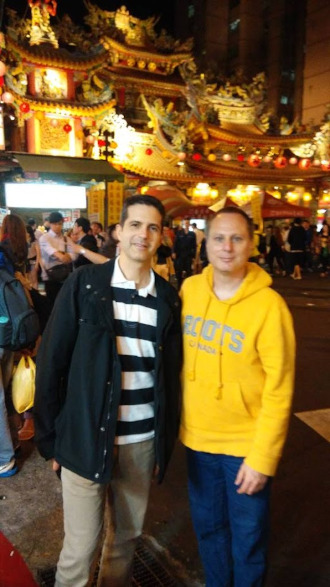For Academic Recruiters

Thomas Walker Lynch
Scroll down to see the yellow line under the content.
Bold blue text signifies a link even in headings. Panels flow
through columns and resize depending on the width of the window.
Introduction
On other pages of this website, a reader will see that I am looking
for funding for Reasoning Technology. As of the time of this writing,
we have not yet received enough funding to open an
office, and thus we are not tied to a specific location.
I would like to be part of a community of researchers, and I have
some projects that are academic in nature, most of which are described
on this page. I also enjoy teaching as it keeps me young in my
thinking, and challenges me to organize and present material clearly.
The following are interests that I think belong in an academic environment.
Wave and TTCA
Wave is a computer language based on continuations. It comes out of my
TTCA project. If more interest does not develop in the TTCA architecture,
I might open source that as well.
Large Integer Factorization
As of this date, there is no proof that this is computationally hard. Over the past couple of
decades, I've mounted a number of attacks on the problem, and have learned a great deal
about its nature. I have a promising approach that I would like to spend some more time with.
Discrete Optimization
In my master's thesis, I present a deterministic solution to a discrete optimization problem,
that of designing optimum carry skip adders. In this case, I found a dynamic programming solution;
however, I have a concept for a general solution for deterministic discrete optimization, and
would like to work it out. This might also result in writing a book on
number theory.
Questioning the Foundation of Mathematics and Perhaps Proposing an Alternative
I'm curious to learn more about homotopy type theory, and I am
intrigued by an old paper out of Rice University where the authors
used Turing Machine objects to represent numbers. This method can
represent rationals, certain irrational numbers such as Pi, and
represent a concept such as infinity, with finite objects. I question
if continuous functions even exist, as all descriptions of mathematics
are based on language.
Consider a simple example of a parabola, y =
x^2; this is a finite sequence of symbols, so in this sense it is a
discrete function. Any analysis we might perform will be equivalent
to putting these symbols on a Turing Machine tape and running a
program, which is a discrete process. In this light, I would like to better understand
Cauchy sequences and the taking of limits. A state machine that prints .99999...
forever will never jump states to a 1.0 even though the two numbers are the same.
The basis of this work is already in my "Tom's Turing Complete Computing" book,
but this goes in a different direction from that work.
Alternative Means for High Bandwidth Communication
I have a concept for moving beyond microwave communication, though at this
point it is conjecture. I would like to set up some experiments in a
physics or engineering lab.
The White Knight Is Talking Backwards
I put up a paper on my Research Gate that provides some evidence that the mathematics
of quantum physics is describing observations of a Bayesian fluid. I would like to
know if the Schrödinger Equation can indeed be derived from the dynamics of a Bayesian
fluid. It would be a purely mathematical exercise.
Expansion Perceived As A Force
On my website, I used to have an animation showing that if all particles are expanding,
but we rescale so that they appear to be constant size, what we observe is that
particles are attracted to each other. More recently I have put up an explanation on my
Research Gate. I would like to spend some more time to see where this observation
might lead.